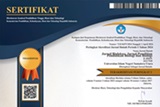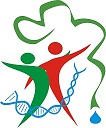The effect of guided inquiry with differentiated learning to enhance students' critical thinking skills
Abstract
This study was designed to determine the effect of guided inquiry model integrated with differentiated learning on students' critical thinking skills on respiratory system material in class VII junior high school. The background of this research is based on the low critical thinking skills of students in Indonesia, as well as the need for a learning approach that is able to respond to the diversity of learning styles, interests, and readiness of students in the classroom. The guided inquiry with differentiated learning model, employs a method of instruction that encourages students to solve problems through the application of analytical and critical thinking skills. The present study employs a quasi-experimental design, specifically pretest-postest control group design. The present study utilizes a critical thinking ability test instrument according to Ennis, comprising 10 essay questions. Hypothesis testing was carried out with a significance level of 0.05 with the help of SPSS version 26. The research results demonstrated a significant influence of the guided inquiry learning mode with differentiated learning on students' critical thinking abilities, as measured by the Mann-Whitney U test with Asymp scores. Sig (2-tailed) 0.000, indicating a significance value <0.05. In conclusion, guided inquiry with differentiated learning is effective to enhance students' critical thinking skills and can be an alternative adaptive and responsive science learning strategy in the Merdeka Curriculum.
Keywords
Full Text:
PDFReferences
Abrami, P. C., Bernard, R. M., Borokhovski, E., Waddington, D. I., Wade, C. A., & Persson, T. (2015). Strategies for teaching students to think critically: A meta-analysis. Review of educational research, 85(2), 275-314. https://doi.org/10.3102/0034654314551063
Alfaro-LeFevre, R. (2016). Critical thinking indicators. Stuart: Teaching Smart.
Andrini, V. S. (2016). The Effectiveness of Inquiry Learning Method to Enhance Students' Learning Outcome: A Theoritical and Empirical Review. Journal of Education and Practice, 7(3), 38-42.
Arda, A., Supriyatman, S., & Afadil, A. (2024). A Review of Students' Critical Thinking Skills in Science Learning in Indonesia. Jurnal Pendidikan MIPA, 25(4), 1787-1798. http://dx.doi.org/10.23960/jpmipa/v25i4.pp1787-1798
Billah, A., & Masykuri, M. (2021). Analysis of critical thinking in junior high school students through science learning in Indonesia: A systematic review. In Journal of Physics: Conference Series, 1796(1), p. 012013. IOP Publishing. https://doi.org/10.1088/1742-6596/1796/1/012013
Birgili, B. (2015). Creative and Critical Thinking Skills in Problem-based Learning Environments. Journal of Gifted Education and Creativity, 2(2), 71–80. https://doi.org/10.18200/jgedc.2015214253
Burhanuddin (2017). Pengaruh Pembelajaran Inkuiri Terhadap Aktivitas Dan Hasil Belajar Peserta Didik. Inspiratif Pendidikan, 6(2), 305-315. https://doi.org/10.24252/ip.v6i2.5762
Chetry, K. K. (2024). Transforming education: Paradigm shifts in 21st century learning. International Journal of Multidisciplinary Research, 2(5), 469-479.
Collins, R. (2014). Skills for the 21st Century: teaching higher-order thinking. Curriculum & Leadership Journal, 12(14), 1-8.
Dam, G, T., & Volman, M. (2004). Critical thinking as a citizenship competence: teaching strategies. Learning and instruction, 14(4), 359-379. https://doi.org/10.1016/j.learninstruc.2004.01.005
Dewi, S. P., & Widodo, A. (2016). Analisis Konsepsi Siswa dalam Materi Sistem Respirasi. In Seminar Nasional Pendidikan IPA Tahun 2021. 1(1), 361-368. http://www.conference.unsri.ac.id/index.php/semnasipa/article/view/703
Ennis, R. H. (1996). Critical thinking dispositions: Their nature and assessability. Informal logic, 18(2).
Etikan, I., & Bala, K. (2017). Sampling and sampling methods. Biometrics & Biostatistics International Journal, 5(6), 00149.
Facione, P.A. (2015). Permission to Reprint for Non-Commercial Uses Critical Thinking: What It Is and Why It Counts. Insight assessment, 5(1), 1–30.
Faizin, A., Susantini, E., & Raharjo, R. (2024). Application of A Guided Inquiry Learning Model to Improve Students' Scientific Literacy Skills. IJORER: International Journal of Recent Educational Research, 5(2), 490-503. https://doi.org/10.46245/ijorer.v5i2.573
Falahudin, I., Wigati, I., & Astuti, A. P. (2016). Pengaruh model pembelajaran inkuiri terbimbing terhadap kemampuan berpikir kritis siswa pada pembelajaran materi pengelolaan lingkungan di SMP Negeri 2 Tanjung Lago, Kabupaten Banyuasin. Bioilmi: Jurnal Pendidikan, 2(2), 92–101. https://doi.org/10.19109/bioilmi.v2i2.1133
Fauzi, A. (2022). Implementasi Kurikulum Merdeka Di Sekolah Penggerak. Pahlawan: Jurnal Pendidikan-Sosial-Budaya, 18(2), 18–22. https://doi.org/10.57216/pah.v18i2.480
Fu, J. (2013). Complexity of ICT in education: A critical literature review and its implications. International Journal of education and Development using ICT, 9(1), 112-125.
Hasanah, S., Purwoko, A.A., & Hakim, A. (2020). The Effect of Guided Inquiry Learning Model on Chemistry Learning Outcomes. Journal of Science and Science Education, 1(1), 15–20. https://doi.org/10.29303/jossed.v1i1.446
Herwina, W. (2021). Optimalisasi Kebutuhan Murid Dan Hasil Belajar Dengan Pembelajaran Berdiferensiasi. Perspektif Ilmu Pendidikan, 35(2), 175–182. https://doi.org/10.21009/pip.352.10
Hunaepi, H., & Suharta, I. (2024). Transforming education in Indonesia: The impact and challenges of the Merdeka belajar curriculum. Path of Science, 10(6), 5026-5039. https://doi.org/10.22178/pos.105-31
Indawati, H., Sarwanto, S., & Sukarmin, S. (2021). Studi Literatur Pembelajaran Inkuiri Terbimbing terhadap Kemampuan Berpikir Kritis IPA SMP. Inkuiri: Jurnal Pendidikan IPA, 10(2), 99-107. https://doi.org/10.20961/inkuiri.v10i2.57269
Jarnawi, M., Haeruddin, H., Werdhiana, I. K., Syamsuriwal, S., & Mu’aziyah, S. E. S. (2025). Integrating thinking styles into differentiated instruction: enhancing learning outcomes in science education. Integrated Science Education Journal, 6(1), 47-53. https://doi.org/10.37251/isej.v6i1.1328
Kamsinah, D. L., Abdullah, A., & Suryajaya, S. (2020). Analysis of critical thinking skills in junior high school students. Journal of Advances in Education and Philosophy, 4(6), 234-237. https://doi.org/10.36348/jaep.2020.v04i06.002
Khasanah, A. N., Widoretno, S., & Sajidan, S. (2017). Effectiveness of critical thinking indicator-based module in empowering student’s learning outcome in respiratory system study material. Jurnal Pendidikan IPA Indonesia, 6(1). https://doi.org/10.15294/jpii.v6i1.8490
Khoiri, A., Komariah, N., Utami, R. T., Paramarta, V., & Sunarsi, D. (2021). 4Cs analysis of 21st century skills-based school areas. In Journal of Physics: Conference Series 1764(1), IOP Publishing. https://doi.org/10.1088/1742-6596/1764/1/012142
King, D., & Ritchie, S. M. (2012). Learning science through real-world contexts. Second international handbook of science education, 69-79.
Kolb, A. Y., & Kolb, D. A. (2005). Learning styles and learning spaces: Enhancing experiential learning in higher education. Academy of management learning & education, 4(2), 193-212. https://doi.org/10.5465/amle.2005.17268566
Kuhlthau, C. C., Maniotes, L. K., & Caspari, A. K. (2015). Guided inquiry: Learning in the 21st century. Bloomsbury Publishing USA.
Margunayasa, I. G., Dantes, N., Marhaeni, A. A. I. N., & Suastra, I. W. (2019). The Effect of Guided Inquiry Learning and Cognitive Style on Science Learning Achievement. International Journal of Instruction, 12(1), 737-750. https://doi.org/10.29333/iji.2019.12147a
Masitoh, I.D., & Ariyanto, J. (2017). Pengaruh Model Pembelajaran Inkuiri Terbimbing terhadap Kemampuan Berpikir Kritis Siswa Kelas X MIA pada Materi Pencemaran Lingkungan di Surakarta. Bioedukasi, 10(1), 71–79.
Nickerson, R.S. (2010). How to Discourage Creative Thinking in the Classroom. Nurturing Creativity in the Classroom, 1–5. https://doi.org/10.1017/CBO9780511781629.002
Ortega, D. P., Cabrera, J. M., & Benalcázar, J. V. (2018). Differentiating instruction in the language learning classroom: Theoretical considerations and practical applications. Journal of Language Teaching and Research, 9(6), 1220-1228. https://doi.org/10.17507/jltr.0906.11
Pedaste, M., Mäeots, M., Siiman, L. A., De Jong, T., Van Riesen, S. A., Kamp, E. T., Manoloi, C.C., Zacharia, Z.C., & Tsourlidaki, E. (2015). Phases of inquiry-based learning: Definitions and the inquiry cycle. Educational research review, 14, 47-61. https://doi.org/10.1016/j.edurev.2015.02.003
Prast, E. J., Van de Weijer-Bergsma, E., Kroesbergen, E. H., & Van Luit, J. E. (2015). Readiness-based differentiation in primary school mathematics: Expert recommendations and teacher self-assessment. Frontline Learning Research, 3(2), 90-116. https://doi.org/10.14786/flr.v3i2.163
Rambe, Y. A., Silalahi, A., & Sudrajat, A. (2020). The effect of guided inquiry learning model and critical thinking skills on learning outcomes. In The 5th Annual International Seminar on Transformative Education and Educational Leadership (AISTEEL 2020), 151-155. Atlantis Press. https://doi.org/10.2991/assehr.k.201124.033
Reiss, M. J., & Tunnicliffe, S. D. (2001). Students' understandings of human organs and organ systems. Research in Science Education, 31(3), 383-399. https://doi.org/10.1023/A:1013116228261
Rogers, J., & Revesz, A. (2019). Experimental and quasi-experimental designs. In The Routledge handbook of research methods in applied linguistics , 133-143. Routledge. https://doi.org/10.4324/9780367824471-12
Seranica, C., Purwoko, A. A., & Hakim, A. (2018). Influence of guided inquiry learning model to critical thinking skills. IOSR Journal of Research & Method in Education, 8(1), 28-31. https://doi.org/10.9790/7388-0801022831
Shalihin, N. A. F., & Saptono, S. (2019). Implementation of guided inquiry learning to improve the critical thinking skills of junior high school students. Journal of Innovative Science Education, 8(3), 306-314.
Siahaan, E. Y. S., Muhammad, I., Dasari, D., & Maharani, S. (2023). Research on critical thinking of pre-service mathematics education teachers in Indonesia (2015-2023): A bibliometric review. Jurnal Math Educator Nusantara: Wahana Publikasi Karya Tulis Ilmiah Di Bidang Pendidikan Matematika, 9(1), 34-50. https://doi.org/10.29407/jmen.v9i1.19734
Silmi, T. A., Lubis, A., & Maulidi, A. (2025). Model Differentiated Learning in 21st Century Education: A Systematic Review of Strategies, Results, And Challenges. Al Ulya: Jurnal Pendidikan Islam, 10(1), 60-80.
Stanovich, K.E. (2016). The Comprehensive Assessment of Rational Thinking. Educational Psychologist, 51(1), 23–34. https://doi.org/10.1080/00461520.2015.1125787
Subban, P. (2006). Differentiated instruction: A research basis. International Education Journal, 7(7), 935–947.
Sularso, A., Karyanto, P., & Sugiharto, B. (2015). Pengaruh Penggunaan Model Pembelajaran Inkuiri Terbimbing Terhadap Kemampuan Berpikir Kritis Siswa Ditinjau Dari Gaya Belajar Siswa Kelas X Sma N Karangpandan Tahun Pelajaran 2012/2013. Bio-Pedagogi: Jurnal Pembelajaran Biologi, 4(2), 1-4.
Thorp, H.H. (2022). Communicating with clarity. Science, 377(6613), 1363. https://doi.org/10.1126/science.ade8683
Tomlinson, C. A., & Imbeau, M. B. (2010). Leading and managing a differentiated classroom. Ascd
Tomlinson, C. A., & Moon, T. R. (2013). Assessment and student success in a differentiated classroom. Ascd.
Widyapuraya, N. W., Suryana, A. L., Suyanta, S., & Wilujeng, I. (2023). Profil keterampilan berpikir kritis siswa SMP Negeri 1 Juwangi pada pembelajaran IPA. Jurnal Penelitian Pendidikan IPA, 9(3), 1368-1374. https://doi.org/10.29303/jppipa.v9i3.1723
Wulandari, A.S. (2022). Literature Review: Pendekatan Berdiferensiasi Solusi Pembelajaran dalam Keberagaman. Jurnal Pendidikan Mipa, 12(3), 682–689. https://doi.org/10.37630/jpm.v12i3.620
Yeritia, S., Wahyudi, W., & Rahayu, S. (2017). Pengaruh Model Pembelajaran Inkuiri Terbimbing Terhadap Penguasaan Konsep Dan Kemampuan Berpikir Kritis Fisika Peserta Didik Kelas X SMAN 1 Kuripan Tahun Ajaran 2017/2018’, Jurnal Pendidikan Fisika dan Teknologi, 3(2), 181–187. https://doi.org/10.29303/jpft.v3i2.398
Yuniarti, R., & Subekti, H. (2024). Transforming Learning Experiences: Student Perspectives on Differentiated Learning in Guided Inquiry. JOELI: Journal of Educational and Learning Innovation, 1(1), 20-31.
DOI: http://dx.doi.org/10.30821/biolokus.v8i1.4196
Refbacks
- There are currently no refbacks.
Copyright (c) 2025 Jurnal Biolokus: Jurnal Penelitian Pendidikan Biologi dan Biologi
indexed by :












